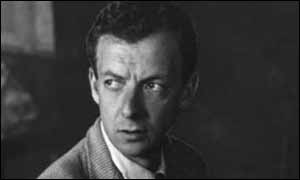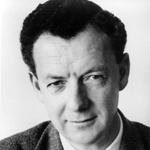Our weekly listen and look at (mostly) living, breathing composers and performers that you may not know yet, but I know you should… And can, right here and now, since it’s right there waiting online. (the “click picks” category at the bottom of the post isn’t working, but you can revisit all the previous “click picks” by visiting this link: https://www.sequenza21.com/index.php/?cat=29
Elizabeth Olivia Walling (b.1981 — UK)
Walling started out as a self-taught soprano and flautist. She began composing in 2001, and moved to formal composition and performance studies a year later. She’s been a member of New Music Brighton since 2003, and currently writes and performs with the recently-formed group Accident Ensemble. Her work bears a self-confessed “brazen” range of influences and styles which emerge from her long-standing interest in music of many periods: early liturgical and secular music, baroque, classical, modernist and avant garde, jazz and electronic. Recent experiments with electronics show a greater focus on using both modern and early electronic music technology in live performance.
Click on “Works”; you’ll find recordings of many pieces waiting (try Nani, nani, Cane Hill, or the Sanctus if you’re looking for a place to start). For someone who’s only been at composition for 4 or 5 years, there’s a real “voice” and a sophistication that usually doesn’t come so early.
Brian Kane (b.1973 — US, NYC)
Wonderful composer who also does double-duty as a fine jazz guitarist. California-born and trained, but dragged himself across the Rockies and Mississippi to be a post-doctorate Fellow at Columbia University for a while. And boy, does it show!… Besides lots of complete recordings of his work, the site also has quite a few interesting articles on all kinds of contemporary music topics. A nice touch: you can even get Brian’s music fed to you as a podcast, if that’s your thing.
Bernd Alois Zimmermann (1918-1970 — DE)
Ah, my first dead guy. And rather than a range of work, just one piece: Zimmermann’s fantastically fun Musique pour les soupers du Roi Ubu of 1968. From the notes there:
“I am presumably a mixture, typical of the Rheinland, of monk and Dionysus” — “… as the oldest of these young composers” : two self-revelatory sayings of Bernd Alois Zimmermann. In both of them there is not only a concentrated charge of psychological problems, of pessimistic estimation, of clear vision; two famous quotations of the composer who was regarded as being “difficult” in his lifetime, to whom success was denied — apart from his opera “The Soldiers” — who could be so ecstatically joyful and profoundly dejected; an all-round mind and, as many have put it, the last composer who was a master in every field. Perhaps Zimmermann is so popular with younger composers because they find in his works concrete material, comprehensible compositions, first-rate craftsmanship and well-formed material; a composer who, in spite of his basic philosophic tenet, never suppressed “inspiration” or a “flash of insight”, but encouraged spontaneity.
One of the best “pastiche” works I know, with quotes from all over the map (some are blindingly obvious, but see if you can catch the unusual, such as Stravinsky’s Symphony in C), masterfully squashed and skewed, and truly made his own. Every bit worthy of Jarry’s great Ubu Roi!


 There are three anniversaries today of important events connected by a fascinating thread. November 22nd is remembered by many for the assassination of
There are three anniversaries today of important events connected by a fascinating thread. November 22nd is remembered by many for the assassination of  ‘If you’re talking about “relevance to the wider culture” and “speaking to our times“, and all that Greg Sandowian stuff, I couldn’t possibly care less … People seem to forget that there’s always going an audience for whom Beethoven’s 5th or La Boheme is a brand new experience’ – writes Henry Holland today in
‘If you’re talking about “relevance to the wider culture” and “speaking to our times“, and all that Greg Sandowian stuff, I couldn’t possibly care less … People seem to forget that there’s always going an audience for whom Beethoven’s 5th or La Boheme is a brand new experience’ – writes Henry Holland today in  All too often today, appealing menus of new music turn out to be measly meals relying heavily on
All too often today, appealing menus of new music turn out to be measly meals relying heavily on